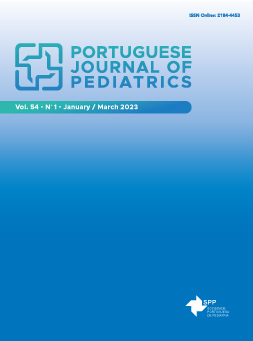ACAN Pathogenic Variant as a Cause of Short Stature
DOI:
https://doi.org/10.25754/pjp.2023.26109Abstract
Pathogenic variants of the aggrecan (ACAN) gene have been associated with a wide spectrum of growth modifications ranging from idiopathic short stature to severe skeletal dysplasia. We reported a case of an 8-year-old male observed in a pediatric endocrinology consultation for short stature (-3.46 standard deviation score). Investigation revealed a bone age advance of less than one year, somatotropin stimulation tests with clonidine and L-DOPA level of below 7 ng/dL, the normal value of insulin-like growth factor 1, and normal brain magnetic resonance. He started treatment with subcutaneous somatropin by 8.8 years. Over the years some traits on physical examination became more notorious, namely an upper segment longer than the lower, muscled appearance, broad thumbs, macrocranea, and mild bilateral eyelid ptosis. Clinical exome sequencing revealed a pathogenic variant c.1020del in the ACAN gene.
Downloads
Downloads
Published
Issue
Section
License

This work is licensed under a Creative Commons Attribution-NonCommercial-NoDerivatives 4.0 International License.









